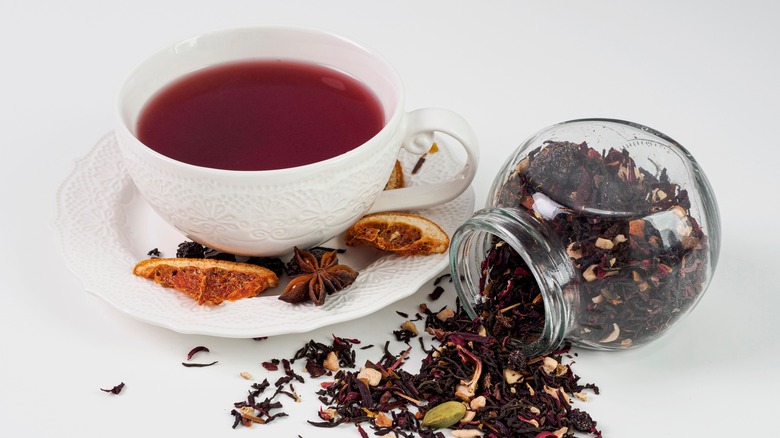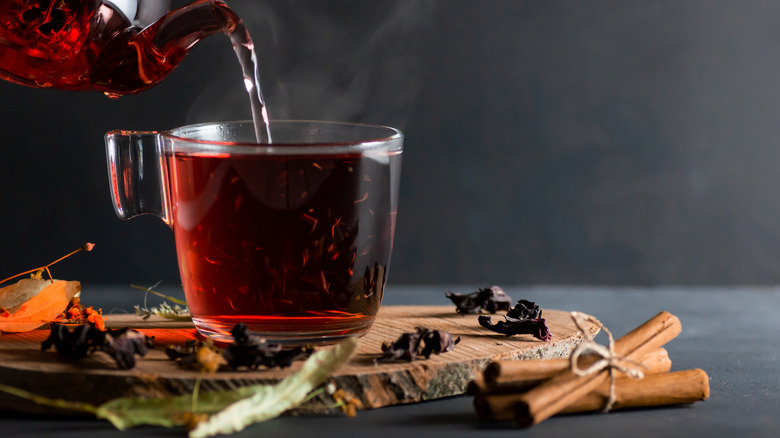The Spice-Heavy Tea Blend Marcus Samuelsson Can't Get Enough Of
When many people think of Ethiopia they think of coffee — and for good reason. The story goes that coffee plants were first discovered on the Ethiopian plateau, and the country itself is one of the world's largest coffee bean growers.
The Observatory of Economic Complexity (OEC) says that Ethiopia exported more than $860 million in coffee in 2020 making it the 10th-largest exporter in the world, and the largest in Africa. It's also a huge cultural force. A traditional "buna tetu", or coffee ceremony can last for hours as friends and family come together to roast the beans, brew the drink, and enjoy at least three cups before parting ways again.
That doesn't mean that coffee is all they drink there though. The same climate and fertile soil that makes coffee plants so productive also helps tea to grow well. In fact, celebrity chef and "Chopped" judge Marcus Samuelsson loves giving Ethiopian spiced tea as a gift to friends. Tea in Ethiopia might not have the same ancient history as it does in other countries, but it is still a rich tradition full of flavors to explore.
The history of tea in Ethiopia
While tea farms have been present in Ethiopia for a century, the business of selling and exporting tea is relatively new. The first Ethiopian tea farms were started in the 1920s. The first tea seeds were possibly introduced to the region by the British who would have had access to plantations in India at the time. Production in the area would grow much later on in the 1950s when the first public tea processing company was founded.
Later, in the 1980s, the government would get involved to promote the growth of the tea industry in Ethiopia. Over time, Gumaro and Wush Wush would become the two largest tea plantations in the country. Both are located in the region to the West of the capital Addis Ababa.
Ethiopia's tea industry has since grown enough that it's been able to start exporting modest amounts, but more importantly, it is less reliant on imports. While Ethiopians adore their coffee, they also enjoy a good cup of tea. Normally, that tea would be imported from neighboring Kenya, but as these plantations grow the country is able to become less reliant on imports.
What is Ethiopian Tea?
Ethiopian tea is identified as Addis Tea. It is a strong black tea that is most often paired with a blend of spices similar to chai but without the addition of milk. Those spices typically include cinnamon, clove, ginger, and cardamom among others. Samuelsson's favorite from Serengeti Teas & Provisions includes cinnamon, orange, clove, and cardamom. He tells Bon Appétit that it gives it a spicy kick that doesn't step into hot territory.
Ethiopians are well known for their embrace of seasonings like the staple berbere spice mix, and their tea is no different. Mixes of black tea with sugar or honey, and a blend of spices are commonly enjoyed with sweets or cakes during social gatherings, but without the intensive coffee ceremony.
A similar non-caffeinated version is also available. It uses all of the spices as flavoring akin to an herbal tea. This gives a punch of flavor without the extra jitters from the tea leaves. Another option is Shy Ben Laben which keeps the spices, but swaps out the water for milk. This makes it more similar to chai, but of course, any of these variations are great to suit personal tastes.


